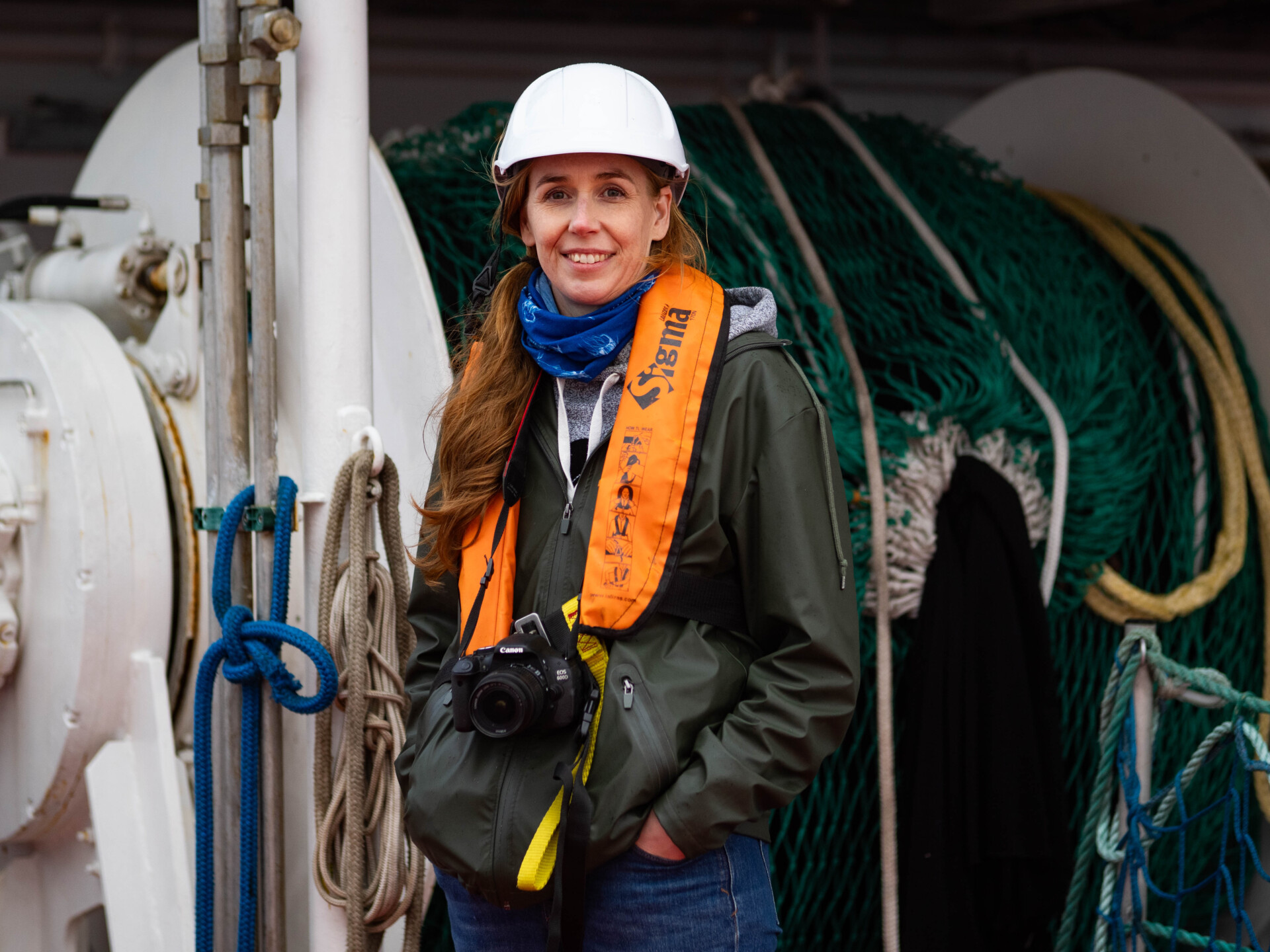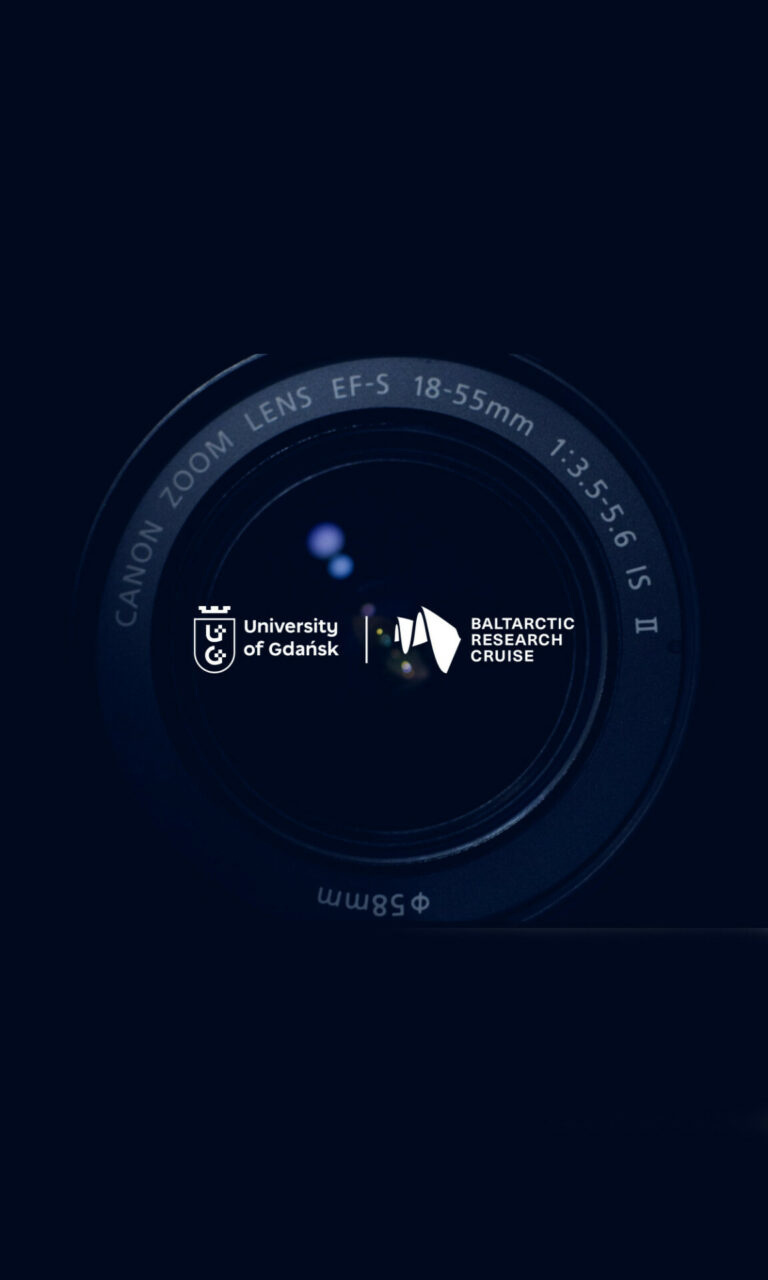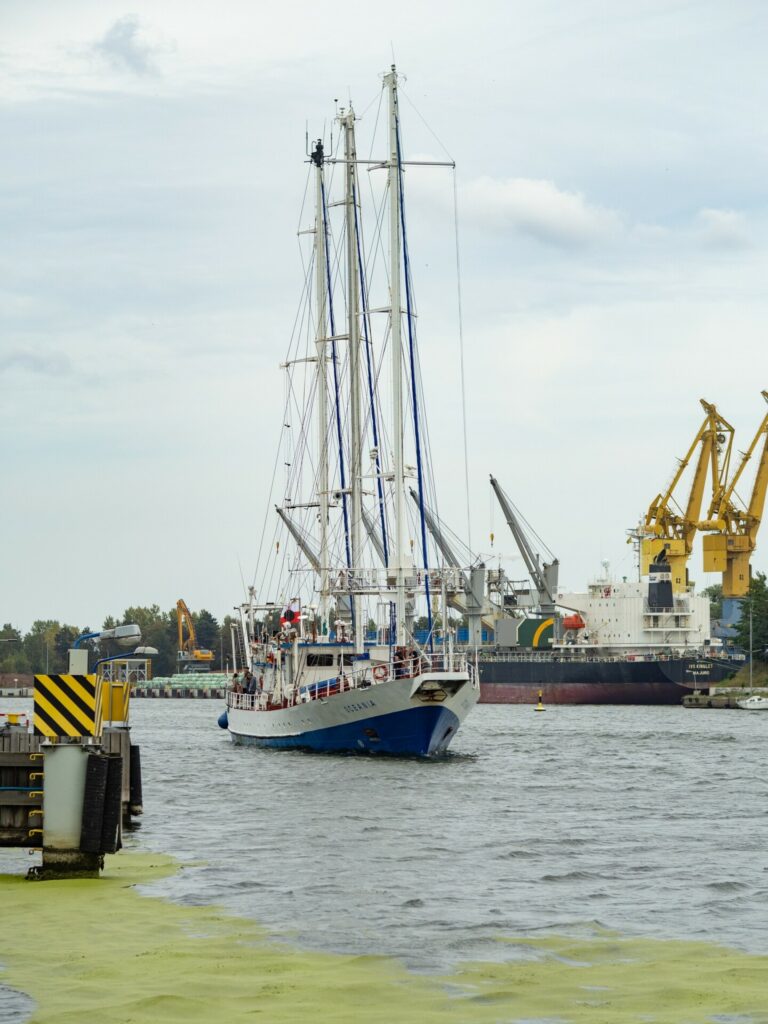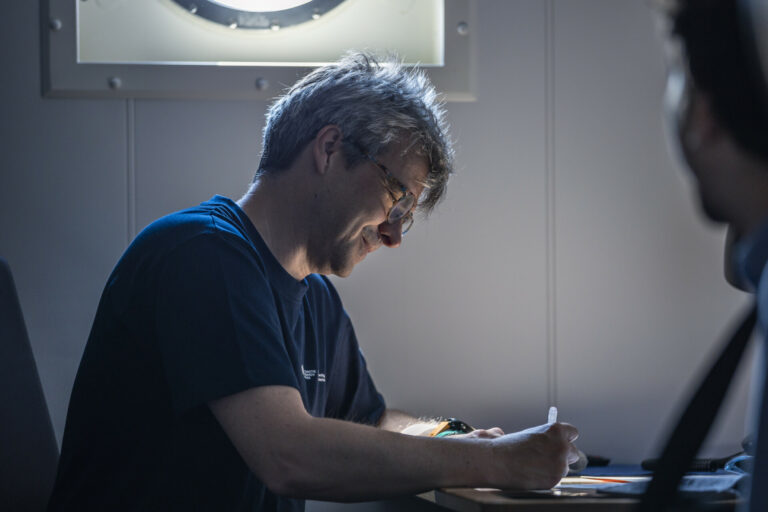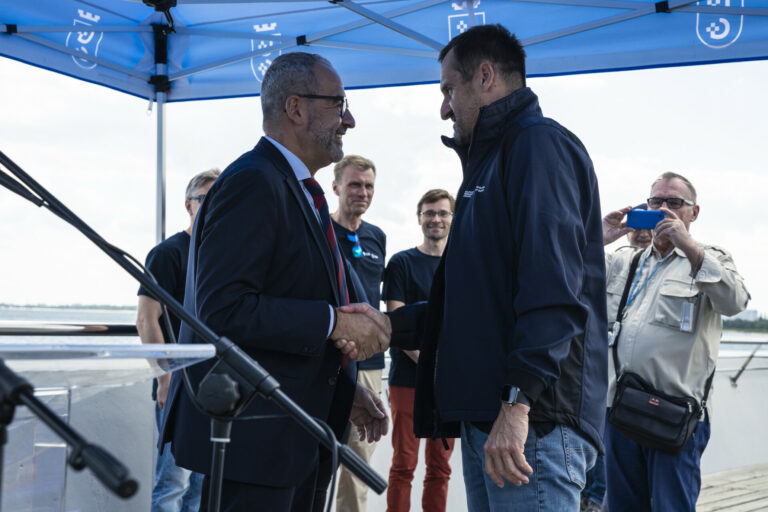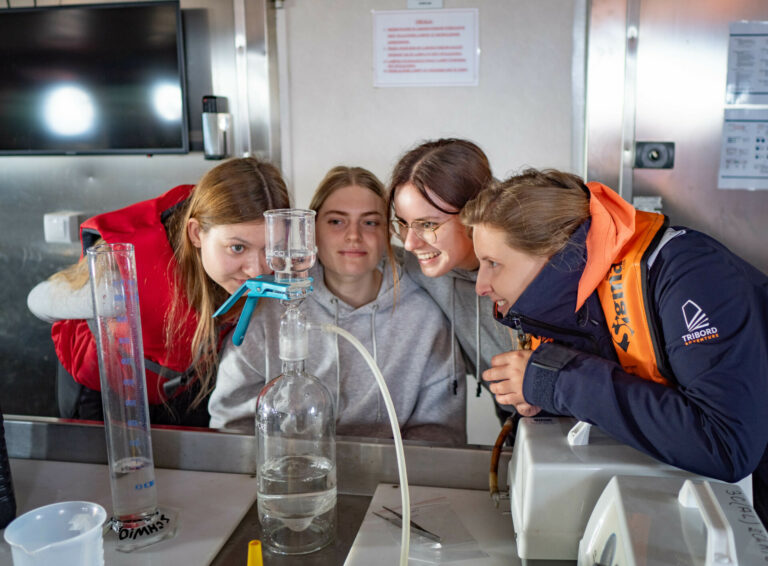‘A lot of research shows that the more diversity you have in your scientific team, the more innovation you’re going to have. I think that’s something we should strive for in marine science, because we need to have many perspectives represented to reflect the diversity of the society we live in.’ says Ellen Johannesen, a PhD Candidate at World Maritime University. Read about the gender dynamics and inequalities in marine science in an interview with social scientists, who conducts an entographic study on board of the r/v Oceanograf.
What are your research interests on board r/v Oceanograf?
I’m interested in learning about what it’s like to be at sea and in understanding some gendered aspects of the life on ship. We have different gender roles, and women are traditionally very underrepresented in marine science. I want to see what parts of fieldwork might be influencing these inequalities. But it’s interesting that on this leg of the cruise there are many more women in the research team than men.
On the r/v Oceanograf you are doing an ethnographic study, which means you are trying to understand the culture and practice of the researchers. How do you like it, being involved in all the activities?
I’m having a great time and learning a lot. As well as being a researcher, I’ve also been working at the science-policy interface, at the International Council for the Exploration of the Sea(ICES), where they’re really at the end of the data pipe. It’s fascinating to see where and how this environmental data is being collected.
I’ve seen you help in many different ways during the sampling process. What is your favourite activity to take part in?
I’m just trying to make myself useful and hoping to do a kind of autoethnography about my own experience of being here. During my stay here, I’ve helped to collect water from the rosette, watched them set up the multinet sampler, and collect samples from the microlayer. I’m happy to help.
What kind of interactions are you interested in on board of the R/V Oceanograf?
I’m coming with an open mind and trying to see what I can find. At the moment I’m taking detailed notes and trying to understand the experiences of the research team and the crew. It’s really exciting and interesting to see so many young, passionate researchers learning so much about the sea. This experience is so important for them at an early stage in their careers. I think it will really help them build confidence and learn so many things about their field that are really critical for career progression.
You’ve had the opportunity to observe one other research cruise. What was that like?
In November 2022 I went to Arctic Norway with Sea Women Expeditions. We were a team of women and gender diverse people conducting a study on orca-snorkel interactions and collecting eDNA, and other environmental data. What was unique about this experience was the focus on gaining polar expedition experience. This included a women’s leadership programme, which I co-led in the second cohort. In the end, we really came together as a team on this cruise, and we are still in regular contact.
You recently defended your PhD, what’s it about?
My PhD was about gender equality in marine science. I looked at the institutional aspects of gender inequality, what leads to gender equality and how we can change our marine science institutions to make them more equal. If you look at the bachelor, master and PhD level from a gender perspective, it’s evenly split between men and women. But after the PhD, you start to see a gender gap in career progression. There are fewer and fewer women in the upper levels of the academic hierarchy. At ICES, which was the case study for my study, only 20% of top level of decision-makers are women.
We still don’t really know how many women are working in marine science overall. The Global Ocean Science Report tells us 38%, but that statistic is based on a very incomplete dataset. When we think about how far ocean science has advanced, and how many datapoints we have on the ocean, but we still don’t have a good overview of the gender representation of ocean science researchers globally.
What interested you in the topic of gender equality in marine science in the first place?
As a young woman I felt very equal. I could see men and women around me progressing in their careers, but after working at ICES for 15 years, I started to look around and wonder: where are all the women? I think that’s what really made me want to look more at how this inequality starts. Especially in this UN Ocean Decade, where we have this huge focus on our seas and oceans. We can’t change our relationship with the ocean if we don’t address some of the systemic biases that exist in our discipline. A lot of research shows that the more diversity you have in your scientific team, the more innovation you’re going to have. I think that’s something we should strive for in marine science, because we need to have many perspectives represented to reflect the diversity of the society we live in.
What advice would you give to young female researchers about getting into marine science?
I don’t want women to have to conform to a system that is broken. As a scientific community, we need to be more conscious of how we do things. For example, ensuring scientific awards do not only recognise one kind of researcher. We need to critically reflect on our practices and think consciously about what we value in science. Publications are important, but that’s not the only thing that’s of value to a scientific team. We need to appreciate different kinds of contributions in a more transparent way. Only then will we see change.
